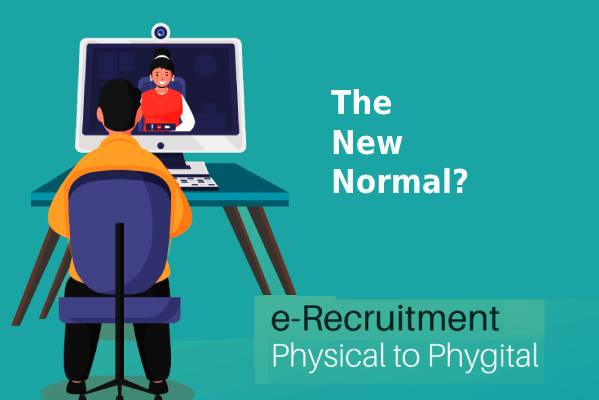
Bangalore, February 19 2023: The pandemic caused a significant shift in how recruitment was conducted, making it a more diverse and geographically dispersed process. As a result, organisations globally have embraced remote recruitment as a solution to the challenges posed by the pandemic.
Recruitment automation and assessment solutions provider HirePro, has conducted a market study titled, ‘e-Recruitment - The New Normal of Recruitment’, which uncovers that organisations are turning towards e-recruitment, a shift from physical to phygital forms of hiring. The findings from the study suggest there is an increased adoption and shift towards remote recruitment in enterprises across industrial sectors.
The market study has been conducted to explore how remote recruitment has evolved and what the future of this approach will be. The study states that before the pandemic, most recruitment processes were physical, with only 10% being mostly fully remote. And during the pandemic, the recruitment process shifted to remote, with 80-90% of organisations conducting recruitment almost entirely remotely. However, after the pandemic, 85 to 90% of recruitment for junior, middle, and senior-level positions is either partially, mostly, or fully remote. Hence, after the pandemic, even when things returned to normal, organisations did not revert to their pre-pandemic methods of in-person recruitment process.
Says S. Pasupathi, Chief Operating Officer, HirePro: "In last two and a half years, recruitment, which used to be a homogenous process, became heterogeneous, with the recruiters, hiring managers and candidates spread across geographies. Organisations underwent a paradigm shift and e-Recruitment is transforming the hiring landscape. The survey conducted among large, mid-level, small and start-up companies reveal many benefits that prompted them to adopt remote recruitment.”
“As companies move towards hybrid mode of working, they’re shifting towards a combination of digital and physical hiring - the phygital hiring, which is the new normal. Phygital hiring, which is a tectonic shift in recruitment process, is expected to make it frictionless in the heterogeneity that’s prevalent today.”
The major benefits of remote recruitment as perceived by the organisations are cost and time savings, followed by process efficiency, access to a wider talent pool and better candidate screening.
Adopting the right technology is going to be crucial for implementing phygital hiring procedures. While remote recruitment offers cost and time benefits, it also comes with its own challenges, such as the risk of candidate malpractice during assessments and interviews, and the lack of human connection. However, advancements in recruitment automation and allied technologies are helping the industry overcome these challenges.|
Key findings of the HirePro e-Recruitment Report